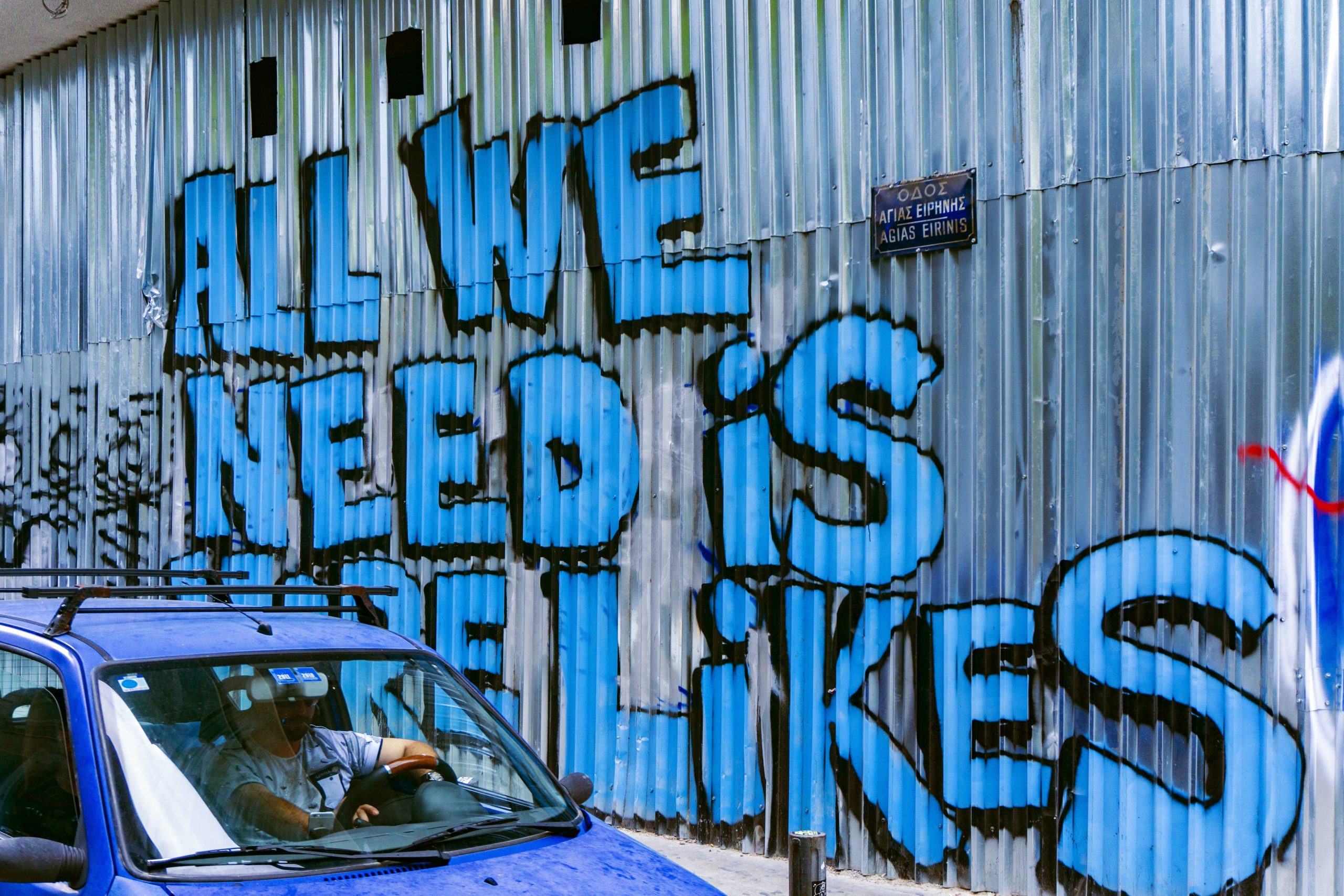
In Some Cultures, Soft Skills Are Signs of Weakness

We like to invite Entrepreneurship Masters students from around the world to the wine country—our home. We enjoy giving them a break from the concrete jungle and campuses they visit in Silicon Valley. These students come from all over to pay tribute to the Technopreneurship success stories of our time. After being wowed by tech, lectured by VCs, and dazzled by Google, Twitter, and Facebook tours, they have a chance to put their feet on the ground again—literally. We bring them to “Your Outdoor Classroom in the Wine Country.”
We offer creeks, redwoods, and grassy meadows next to a Russian River Valley vineyard, instead of glass, steel, and concrete. Rather than talking about engineering, VCs, unicorns, and tech, we like to discuss soft-skill approaches to the three essential relationships in business: Employees, Buyers, and Vendors. We choose a natural setting and engage these students in a conversation about using soft skills to earn hard cash. After all, it’s through soft skills that we can attract, train, and retain the best staff. It’s through these essential skills that we can extend our credit and terms. It’s also through soft skills that we can make sales and keep loyal customers.
But some students’ cultures look down on soft skills as if they are indications of weakness or “softness”.
Their cultures might be new to entrepreneurship. For example, these students themselves might have great reasons not to trust their governments or corporations. They might think that strength, wealth, monopoly, and coercion are the best tools with which to achieve success.
The biggest problem with that mindset is that it lessens the opportunities for entrepreneurship unless you are already in a wealthier class. You can easily suffer from high turnover, lack of staff engagement, and overspending because nobody trusts you.
This brings us to these students’ fascination with the West. Our business culture is based on a foundation of trust! And trust is based on empathy. “Does the person I’m doing business with understand, care, and acknowledge my challenges? Do they communicate with me in ways that make me feel comfortable taking a risk with them?” If answered in the affirmative by your vendors, employees, and buyers, these questions can slash your need for capital and thereby increase your bottom line.
Building culture on a foundation of trust is NOT weak!
A business’s strength relies on the creation of entrepreneurship and mutual benefit—not just “old money”. This creation leads to more breakthroughs that will bring costs down and the standard of living up. Most US jobs today are with small entrepreneurs.
On one hand, we have engineering, which is based on physics and science. On the other hand, we have a negotiation, which is based on mutual benefit and soft skills. A great negotiator will find efficient solutions that benefit both parties—this is anything but weak. On the contrary, it shows a unique strength that transforms competition into collaboration.
Cultures that are new to entrepreneurship send their students to America to learn why our type of entrepreneurship works as well as it does. We hope to share these foundations of soft skills and how they impact trust to promote loyalty, terms, and credit, reducing the need for cash. We want to get across the fact that soft skills earn hard cash!
Maybe these students will sow these soft skill seeds in their own backyards. And maybe they’ll bloom into many opportunities for their own people! Soft skills are not weak—they’re strong!
For more, read on: http://c-suitenetworkadvisors.com/advisor/michael-houlihan-and-bonnie-harvey/
Preserve Founders Legacy through Story Performed by Actors with Sound Effects and Music
DOES YOUR HISTORY, FOUNDING SPIRIT, & GUIDING PRINCIPLES GET LOST OVER TIME?
Does your growth result in specialization, turf battles, corporate malaise, costly employee turnover, and lack of engagement and loss of the big picture?
"Any company that works intentionally on their culture will like this product for on-boarding."
-Bill Higgs, Host, Culture Code Champions Podcast
"TRANSFORMATIONAL ! Tremendous potential for CEO's to tell their story in a new way!"
-Robert Reiss, Forbes Magazine
After building & selling the famous Barefoot Wine Brand and writing the NYT's Bestseller, The Barefoot Spirit, used in 60 schools of entrepreneurship, and after a decade of being trusted advisors to startups, buildups, and buildouts, Michael Houlihan & Bonnie Harvey have developed Business Audio Theatre. As workplace culture experts, they believe the best way to increase engagement and reduce turnover is through story. They believe the best way to convey business story is through audio theatre provided to new employees on day one. Identification with the founders, their story, and their principles is the basis for identification. Identification is the basis for engagement. Engagement is the basis for longevity. Find out more!
Watch C-Suite TV Interview with Taryn Winter Brill:
Listen to The Barefoot Spirit from the C-Suite Library
Call: 707-484-1600
EMAIL: Sales@TheBarefootSpirit.com
Michael & Bonnie in Action:
1.5 minute: https://barefootspirit.wistia.com/medias/svuthvx4uy
2.5 minute: https://barefootspirit.wistia.com/medias/q1t21okz9f
3 minute: https://barefootspirit.wistia.com/medias/8y5btoyfrw
10 minute: https://barefootspirit.wistia.com/medias/8crj4p1hg9
|Welcome to Business Audio Theatre the Most Effective Onboarding Tool to Reduce Turnover and Increase Engagement
Preserve Founders Legacy through Story Performed by Actors with Sound Effects and Music
DOES YOUR HISTORY, FOUNDING SPIRIT, & GUIDING PRINCIPLES GET LOST OVER TIME?
Does your growth result in specialization, turf battles, corporate malaise, costly employee turnover, and lack of engagement and loss of the big picture?
"Any company that works intentionally on their culture will like this product for on-boarding."
-Bill Higgs, Host, Culture Code Champions Podcast
"TRANSFORMATIONAL ! Tremendous potential for CEO's to tell their story in a new way!"
-Robert Reiss, Forbes Magazine
After building & selling the famous Barefoot Wine Brand and writing the NYT's Bestseller, The Barefoot Spirit, used in 60 schools of entrepreneurship, and after a decade of being trusted advisors to startups, buildups, and buildouts, Michael Houlihan & Bonnie Harvey have developed Business Audio Theatre. As workplace culture experts, they believe the best way to increase engagement and reduce turnover is through story. They believe the best way to convey business story is through audio theatre provided to new employees on day one. Identification with the founders, their story, and their principles is the basis for identification. Identification is the basis for engagement. Engagement is the basis for longevity. Find out more!
Watch C-Suite TV Interview with Taryn Winter Brill:
Listen to The Barefoot Spirit from the C-Suite Library
Call: 707-484-1600
EMAIL: Sales@TheBarefootSpirit.com
Michael & Bonnie in Action:
1.5 minute: https://barefootspirit.wistia.com/medias/svuthvx4uy
2.5 minute: https://barefootspirit.wistia.com/medias/q1t21okz9f
3 minute: https://barefootspirit.wistia.com/medias/8y5btoyfrw
10 minute: https://barefootspirit.wistia.com/medias/8crj4p1hg9
|Welcome to Business Audio Theatre the Most Effective Onboarding Tool to Reduce Turnover and Increase Engagement
Preserve Founders Legacy through Story Performed by Actors with Sound Effects and Music
DOES YOUR HISTORY, FOUNDING SPIRIT, & GUIDING PRINCIPLES GET LOST OVER TIME?
Does your growth result in specialization, turf battles, corporate malaise, costly employee turnover, and lack of engagement and loss of the big picture?
"Any company that works intentionally on their culture will like this product for on-boarding."
-Bill Higgs, Host, Culture Code Champions Podcast
"TRANSFORMATIONAL ! Tremendous potential for CEO's to tell their story in a new way!"
-Robert Reiss, Forbes Magazine
After building & selling the famous Barefoot Wine Brand and writing the NYT's Bestseller, The Barefoot Spirit, used in 60 schools of entrepreneurship, and after a decade of being trusted advisors to startups, buildups, and buildouts, Michael Houlihan & Bonnie Harvey have developed Business Audio Theatre. As workplace culture experts, they believe the best way to increase engagement and reduce turnover is through story. They believe the best way to convey business story is through audio theatre provided to new employees on day one. Identification with the founders, their story, and their principles is the basis for identification. Identification is the basis for engagement. Engagement is the basis for longevity. Find out more!
Watch C-Suite TV Interview with Taryn Winter Brill:
Listen to The Barefoot Spirit from the C-Suite Library
Call: 707-484-1600
EMAIL: Sales@TheBarefootSpirit.com
Michael & Bonnie in Action:
1.5 minute: https://barefootspirit.wistia.com/medias/svuthvx4uy
2.5 minute: https://barefootspirit.wistia.com/medias/q1t21okz9f
3 minute: https://barefootspirit.wistia.com/medias/8y5btoyfrw
10 minute: https://barefootspirit.wistia.com/medias/8crj4p1hg9
- Tell Your Story With an Experienced and Award-Winning Team - December 10, 2020
- The Romance of the Wine Business – Not! - November 19, 2020
- Do a Re-Take on Your Miss-Take - October 23, 2020







